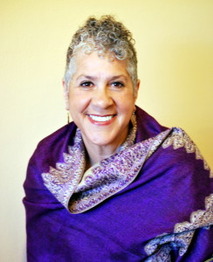On February 16, Gustavus welcomed Dr. Shatki Butler to our campus’ Alumni Hall. Dr. Butler is an esteemed facilitator, lecturer, trainer, and activist around race and social justice.
Dr. Shatki Butler is the founder and President of World Trust, which is an organization established for racial equity and utilizes methods such as films and seminars to educate thousands of people each year about racial justice and commit to positive change in the world.
“Film can be a powerful catalyst for deep learning, healing, and insitutional change,’ Dr. Shatki Butler said.
Dr. Butler’s visit was sponsored by the President’s Office and all students, faculty and staff were encouraged to attend her workshop.
“Film can be a powerful catalyst for deep learning, healing, and insitutional change”—Dr. Shatki Butler
Dr. Butler’s visit was set up earlier in the school year when her Outreach Advisor contacted the Diversity Center in the fall of 2015 to inform them she would be in Minnesota. Since Gustavus’ Multicultural Peer Educators have used part of her video “Cracking the Codes” in their work, they were excited to bring her to campus.
While she was here on campus, she met with numerous students and faculty to understand the racial environment at Gustavus and also to aid in how to move forward with race and social justice education.
“I’m excited that we now have a core group of people who can take this work forward to help us work toward racial justice on campus”—Thia Cooper
There were two major events that took place, the afternoon workshop entitled “Understanding White Culture as a 21st Century Leadership Skill and a smaller workshop in the evening entitled, “Train the Trainer.”
The first workshop introduced the campus to culture as a whole and, in particular, white culture as the dominant culture.
“Her workshop was a good starting point for us because many of us, Caucasians in particular, don’t notice our ‘culture’ because it fits with us as white people. Thus, it’s harder to see why others feel they don’t ‘fit in’. It also leads us to normalize whiteness as ‘good’ and ‘civilized’ and to see other cultures as ‘bad’ or ‘negative’. I think her workshop did a great job at teasing out many of these issues,”Associate Professor in Religion and Culture, Thia Cooper said.
The interactive workshop aimed to educate and help students understand how to build strategies that addess socio-economic and racial barriers. It covered history, identity, and culture, as well as, internal components of bias, privelge, and internalized racism. It then covered external components consisting of interpersonal, institutional and structural relationships.
”I really enjoyed the workshop because it really opened my eyes to situations that I was blinded to before and taught me how to handle and approach sensitive, but important topics better,” Senior Communication Studies major, Meredith Fahrenz said.
The smaller workshop that took place in the evening consisted of about 50 students, staff, administrators, and faculty. The “Train the Trainer” workshop demonstrated the technique of strategic questioning and showed the attendees how to utilize it. The technique helps to teach people how to genuinely listen to one another and what they’re saying, and then respond, which generates a more productive conversation overall.
“I’m excited that we now have a core group of people who can take this work forward to help us work toward racial justice on campus,” Cooper said.
